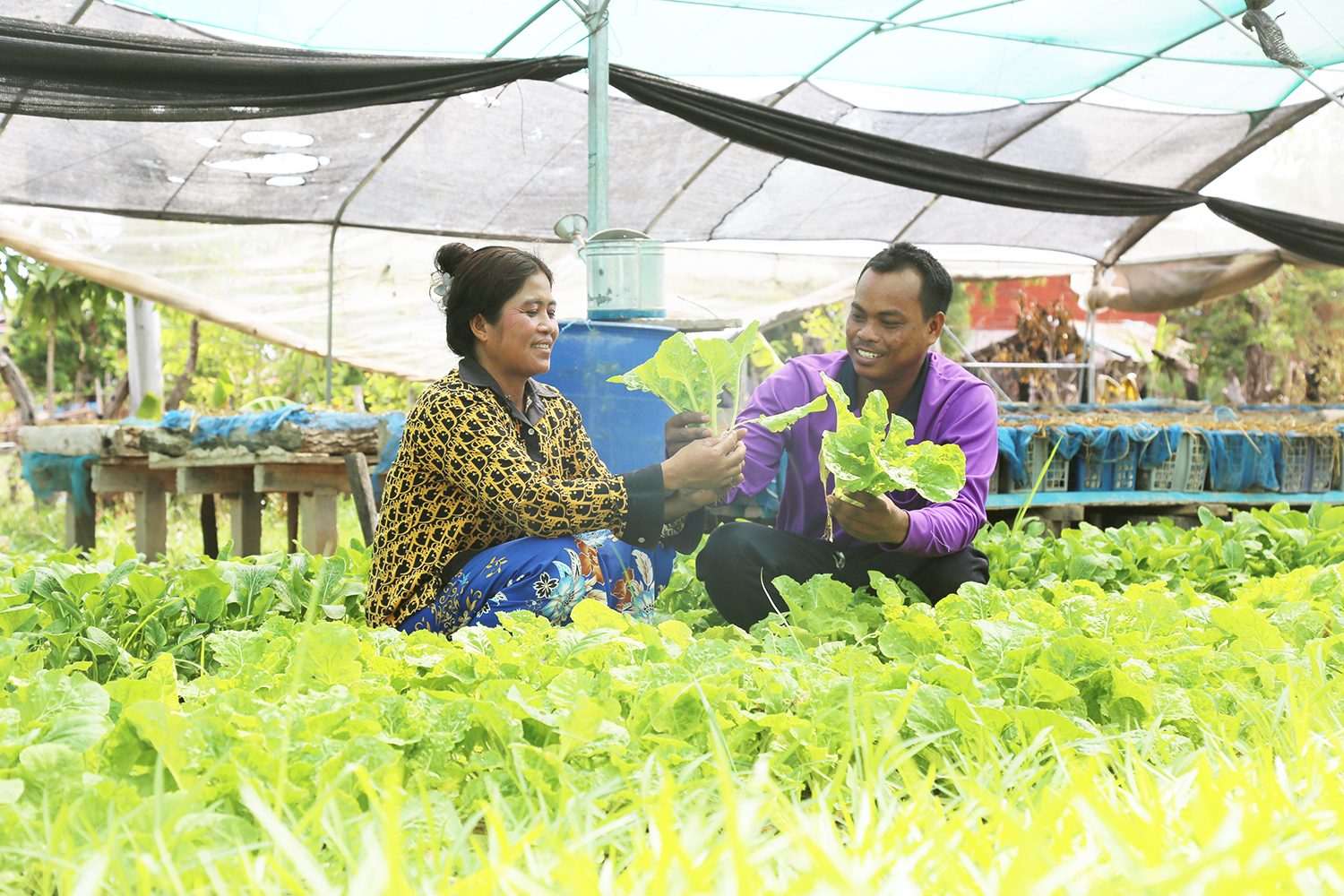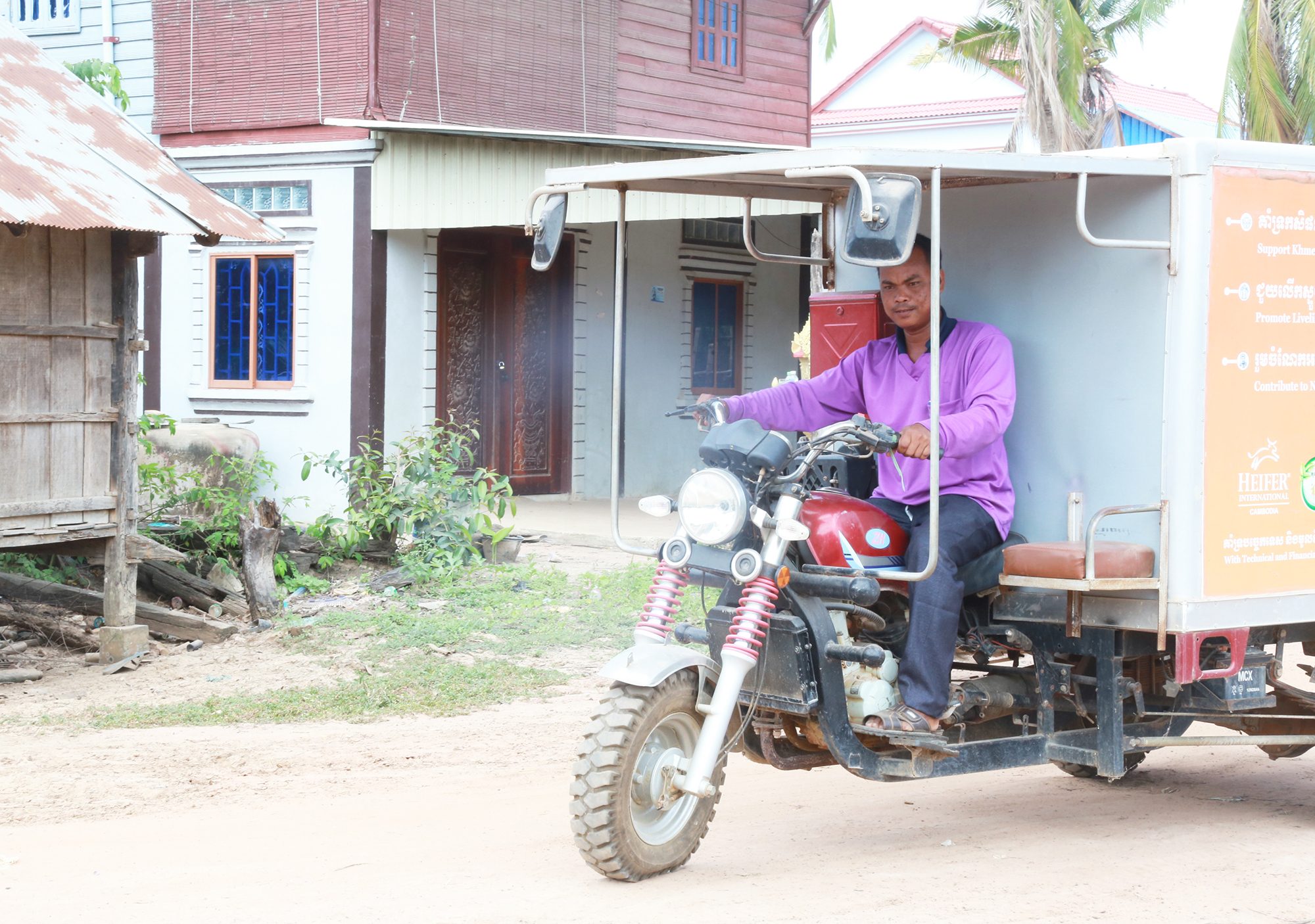Local farmers improve student nutrition
Don established a local farmers group to support families’ livelihoods so they can afford to send their children to school and ensure they get healthy meals when they get there.

While inspecting the curry cabbage at his organic vegetable farming group, Don, a 37-year-old is from a rural district in Siem Reap Province, ensures with a farmer that the vegetables are safe for school children.
Don explained that he established the Agricultural Cooperative, which comprises 193 members. The group’s objective is to support families’ livelihoods so they can afford to send their children to school.
“Most of the children in my village didn’t go to school because their parents couldn’t afford it. I felt sorry for them. I invited their parents to join the cooperative to earn money to support their children’s education including school material and uniform,” he explained.
“Most of the children in my village didn’t go to school because their parents couldn’t afford it. I felt sorry for them. I invited their parents to join the cooperative to earn money to support their children’s education including school material and uniform.“
Don
Once farmers join the cooperative, Don and his team train them in safe, organic vegetable farming and animal raising. He got the support from a NGO working on agriculture techniques and practices. When the harvest is ready, Don helps find markets for their product.
Since 2021, Don has been a food and vegetable supplier for 4 primary schools in Siem Reap Province.

“When the primary school announced a bid for suppliers, I applied and won,” Don explained. “I applied because I have a reliable team that can supply on time for the school feeding programme.”
As a Community Volunteer for Plan International Cambodia’s sponsorship programme, Don is committed to ensuring school students eat safe and healthy food. He regularly visits his farmers to ensure they do not use chemical pesticides. “If they do, we exclude them from our group,” Don explained. “We also hold regular meetings with school principals and support committees to address issues affecting students.”
Don supplies food to schools from Sunday to Friday. However, he faces challenges during the drought season due to climate change, which results in lower harvest yields. He has mobilised farmers from other communes who use biopesticides to address this. “We solve the problem, but our earnings are lower,” Don said.
“But I am happy to help farmers earn a living and ensure school students are safe and healthy.”
The impact on Don’s children
Don’s 2 children are also students at one of the schools where he supplies, and they often share what they learn with him and his wife. Don cooks for his family using safe and healthy ingredients.
Don buys meat and fish from the market, but he is organising a group to start raising them locally for community’s household economic support. He plans to continue bidding to supply food and vegetables to schools to keep the children healthy.
The cooperation with Plan International Cambodia
With funding support from the United States Department of Agriculture through the United Nations World Food Programme, Plan International Cambodia has been implementing the National Home-Grown School Feeding Programme in 202 primary schools in Siem Reap. This programme aims to contribute to the development of Cambodia’s human capital and local economy by providing hot breakfast meals to primary school students and ensuring schools are equipped with the necessary feeding infrastructure and equipment. The programme recruits suppliers to provide vegetables and meat to primary schools.
Categories: Education


